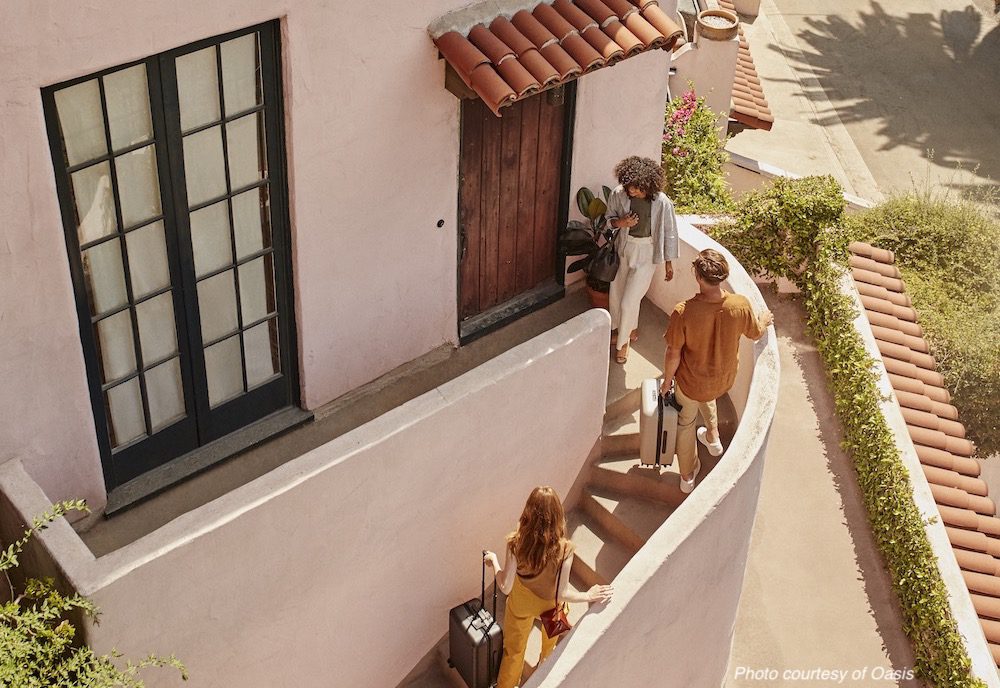

The Sharing Economy is [Choose One]:
A) Stealing Business,
B) Offering Opportunity,
C) What is that, now?
D) All the above.
If you answered “D,” you’re on the right track for this overarching trend which has quickly gone from disruptive to the new normal. Loosely defined as the idea that consumers can share experiences, products, or space in an effort to save cost while also collaborating and interacting, the sharing economy now encompasses a Wild West of re-conceived ways to travel, work, and live. Here are the broad strokes.
The Sharing Economy Is Your Teacher.
A youthful population now thinks of staying in a borrowed home as a cool thing, not a last-ditch-overnight situation. Hence, the arrival of Airbnb, VRBO, and the like. This mindset has disrupted other fields, too, like limo services (Uber), kennels (PetVacay), and Wi-Fi (Fon). The challenge for today’s hotels—can you be creative and nimbly adjust to this changing landscape in cool ways?
Shared Space is the New Cool Hotel Upgrade.
Remember when a big private office was the status symbol? Okay, neither do we, because we’re not Peggy on Mad Men. But today’s worker, and travelers both business and leisure, want appealing public workspaces. In Manhattan, hotel visionary Ian Schrager’s Public hotel has sprawling areas designed to attract locals as much as travelers, in order to up its authenticity and drive business. And at luxury residence hotel Hollywood Proper Residences, major selling points are access to shared work-social spaces Neuehouse downstairs and a rooftop bar upstairs.
Smaller Private Rooms Encourage Larger Social Interaction.
Brooklyn’s Pod Hotel and Manhattan Arlo Hotels locations noticed that travelers were choosing home-sharing companies because they wanted more space to hang out. So these hotels savvily adjusted their layouts with smaller, design-centric rooms and larger communal gathering spaces to nab travelers who might otherwise choose Airbnb.
Access has Become a Selling Point.
Want to separate your property from the pack? Consider offering exclusive invites to local events or parties, because today’s traveler is counting on you for increased ease of access. Home sharing company Oasis has a so-called “sidekick” greet guests at the airport before taking them to an apartment that’s pre-stocked to their specs. Plus they give you access to private social and fitness clubs. (It’s such a good idea, Hyatt is a minority stakeholder in the company.)
Today’s Corporate Retreats Think Different
Business retreats have gotten a real shake-up. Outsite offers six locations for corporate retreats (Costa Rica, Puerto Rico, and four in L.A.) where small companies share villas, cook meals together, and take group surf lessons. And each location has been kitted out with useful white boards, lightning wi-fi, and Apple TV. Roam is a network of co-living spaces that allows individuals and groups in high-cost areas (Miami, Ubud, Tokyo, and London) to dine and work together, with an average two weeks’ stay at as little as $55 per night per guest. And Amsterdam’s Zoku is selling guests ‘hygge’ in a concept in which rooms can be a meeting space or sleeping area or both. So smart hoteliers are ditching the staid board room and developing cool, interactive meeting spaces where workers can meet without feeling all “corporate.”
